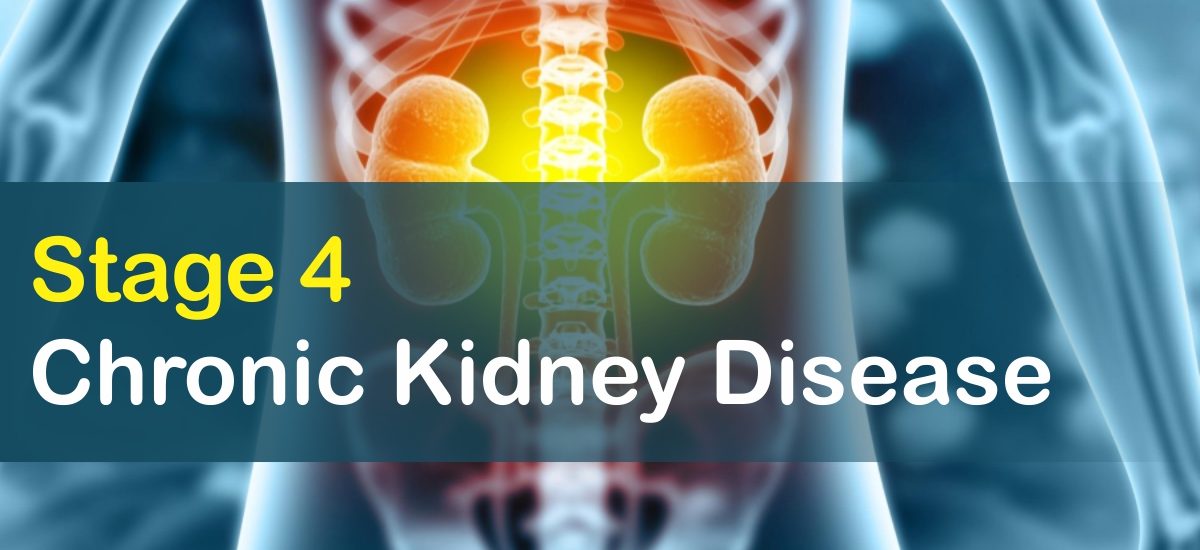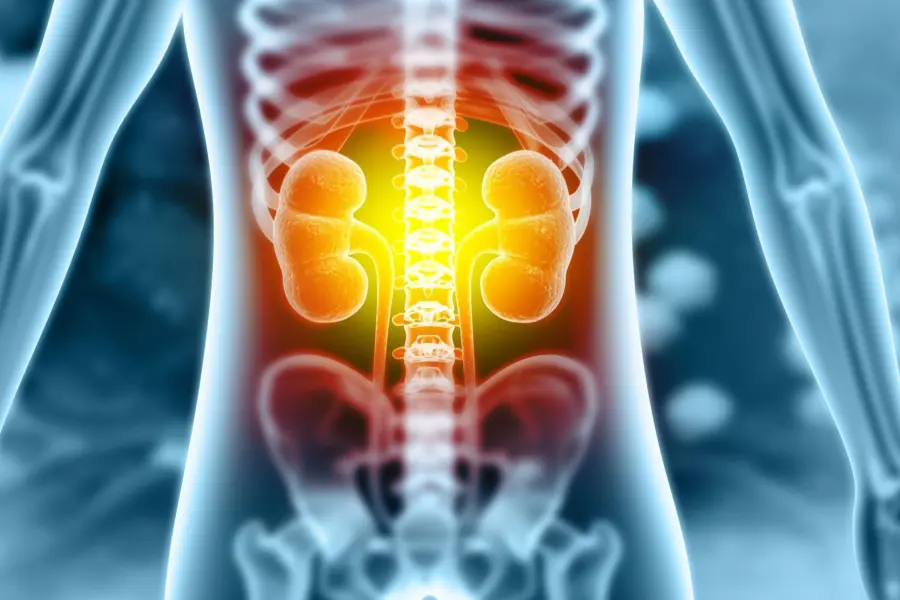


Stage 4 kidney disease occurs when your estimated glomerular filtration rate (eGFR) falls between 15–29, indicating a severe loss of kidney function. At this stage of chronic kidney disease (CKD), it’s important to manage your health as best you can to preserve kidney function and start planning ahead for potential treatments like a kidney transplant or dialysis. Seeing a kidney doctor (nephrologist) can help you learn about and compare options, so you can make treatment choices that are right for you.
As kidney function declines, waste products build up in the blood causing a condition known as uremia. In stage 4, a person is likely to develop complications of kidney disease such as high blood pressure, anemia (a shortage of red blood cells), bone disease, heart disease and other cardiovascular diseases.

Many people do not experience symptoms of kidney disease until the later stages when kidney damage has occurred. Possible stage 4 kidney disease symptoms and signs include:
One of the best ways to keep your kidneys working longer is to follow a kidney-friendly diet. A healthy stage 4 kidney disease diet may involve limiting or monitoring your intake of:
Your level of kidney function and individual lab tests will determine your dietary needs. Talk to a renal dietitian about what foods you should eat. He or she will help you plan kidney-friendly meals that you’ll enjoy eating.
Stage 4 kidney disease life expectancy depends on a number of factors, including your age at the time of diagnosis, your other medical conditions, and your individual treatment plan. While there’s no cure for kidney disease and any kidney damage that has occurred can’t be reversed, you can take action now to help preserve kidney function and slow the progression of CKD. Looking after your health and eating a kidney-friendly diet can also help you feel your best.
Stage 4 kidney disease can cause complications to your overall health.
Common complications of kidney disease include:
Experts recommend a person with stage 4 or 5 kidney disease avoid pregnancy. This is due to the high risk of complications associated with the condition.
There are other lifestyle changes to help prevent further damage to your kidneys. These include:
Once your kidneys become damaged, they cannot get repaired. Doctors can replace the kidney with a donor’s kidney if one is available, but they cannot use medications or other methods to fix the kidney.
The International Classification of Diseases (ICD) is a system used by healthcare professionals to classify and code diseases and medical conditions. Chronic kidney disease (CKD) is a progressive condition that affects the kidneys’ ability to filter waste and fluids from the blood.
The ICD-10 code for stage 4 chronic kidney disease is N18.4. This code falls under the category of “chronic kidney disease, stage 4 (severe),” which is further classified as a subcategory of “chronic kidney disease (CKD).”
The N18.4 code is used to indicate that a patient has a severe stage of chronic kidney disease, with a glomerular filtration rate (GFR) of 15-29 ml/min. This means that the kidneys are functioning at a significantly reduced capacity, and the patient may require medical interventions such as dialysis or a kidney transplant.
It is important to note that the ICD-10 code N18.4 only provides a general classification for the stage of CKD. The specific cause and management of the condition will vary from patient to patient and require additional codes to fully describe the patient’s medical condition.
In the United States, individuals with stage 4 kidney disease may qualify for disability benefits if their condition meets the requirements of the Social Security Administration’s (SSA) Listing of Impairments or if their condition prevents them from performing substantial gainful activity (SGA). The SSA considers the severity of the individual’s symptoms, the effectiveness of their treatments, and the limitations on their ability to work when determining disability eligibility. It is important to consult with a qualified disability attorney or representative to determine your eligibility and to assist you with the application process.